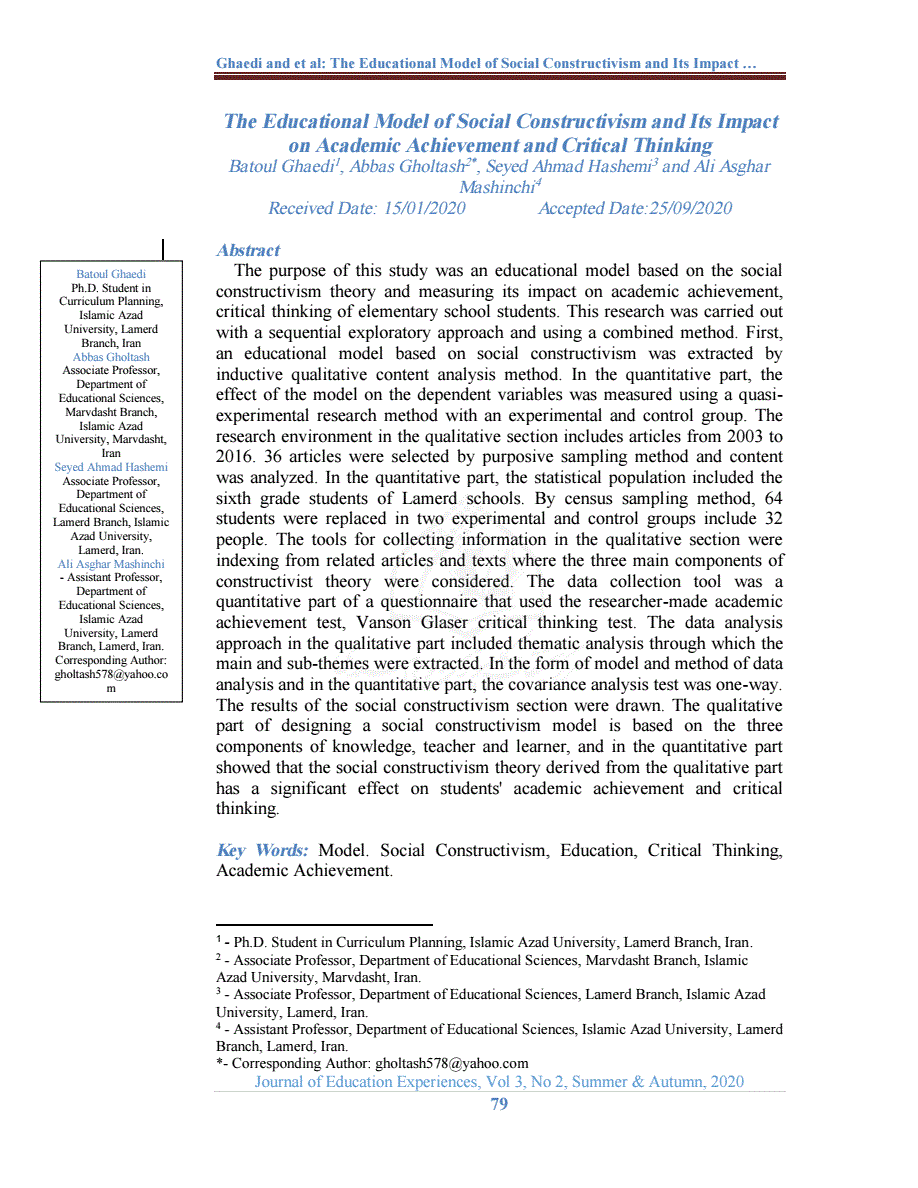Abstract:
Constructivism is one of the theories derived from the post-modernist philosophical-social movement of the twentieth century. The principles of constructivism are based on awareness of learning, and its main message is that knowledge is not passed on to learners, but to learners themselves. This research has designed an educational model based on the theory of social constructivism. All theories of constructivism insist that the attainment of knowledge and understanding is a continuous process that is strongly influenced by the learner's prior knowledge. The social constructivist approach emphasizes the social context of learning and the fact that knowledge is constructed as a factor. Dealing with others provides opportunities for students to evaluate and correct their understanding as they are exposed to the thinking of others and play a role in creating shared perceptions. Thus, experiences in the social context provide an important mechanism for the development of students' thinking. To achieve the research goal, inductive content analysis method has been used. In this study, purposeful sampling method was used. The criteria for selecting an article to analyze qualitative content were well-known authors, published in a reputable journal, the relevance of the content of the article, and the novelty of the year the article was published. The number of final selection papers for qualitative content analysis by inductive method was 36 articles and content analysis unit. Based on the content analysis of the articles, three categories of teacher role, learning role and knowledge role were obtained.
Machine summary:
co m Abstract The purpose of this study was an educational model based on the socialconstructivism theory and measuring its impact on academic achievement, critical thinking of elementary school students.
The qualitative part of designing a social constructivism model is based on the three components of knowledge, teacher and learner, and in the quantitative part showed that the social constructivism theory derived from the qualitative part has a significant effect on students' academic achievement and critical thinking.
Mafakheri (2017) in his master's thesis has conducted a study entitled comparison of the effect of constructivist and traditional teaching methods on learning Thinking and lifestyle lesson and social adjustment of seventh grade male students in Sanandaj in the 2016-2017 academic year.
Sheikhzadeh and Mehr Mohammadi (2004) in a study entitled "Elementary mathematical software based on the constructivism approach and measuring its effectiveness" achieved the results that; Education through constructivism software increases motivation and problem- solving and design skills and increases students' academic performance.
B) Quantitative research questions 1- **How much the effect of the social constructivism educational model on the academic achievement of elementary students in mathematics?
Source Total df Average F Significant Effect squares square level size {مراجعه شود به فایل جدول الحاقی} Examining the second quantitative question of the research How much the effect of the educational model based on the social constructivism theory on the critical thinking of elementary students in mathematics?
The use of an educational model based on the social constructivism theory increases the critical thinking of elementary students in mathematics.

(پژوهیار,
,
,
)

